Question And Answer
Publications
Articles, publications, books, tools and multimedia features from the U.S. Institute of Peace provide the latest news, analysis, research findings, practitioner guides and reports, all related to the conflict zones and issues that are at the center of the Institute’s work to prevent and reduce violent conflict.
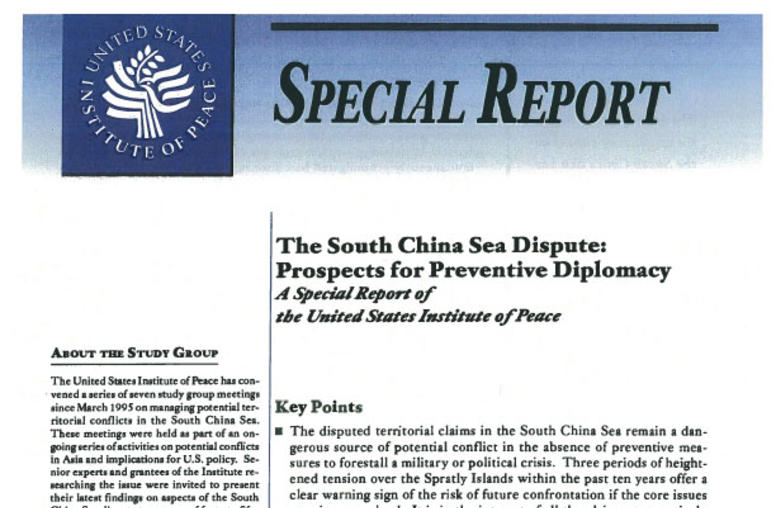
The South China Sea Dispute: Prospects for Preventive Diplomacy
The United States Institute of Peace has convened a series of seven study group meetings since March 1995 on managing potential territorial conflicts in the South China Sea. These meetings were held as part of an ongoing series of activities on potential conflicts in Asia and implications for U.S. policy. Senior experts and grantees of the Institute researching the issue were invited to present their latest findings on aspects of the South China Sea dispute to a group of forty to fifty specia...
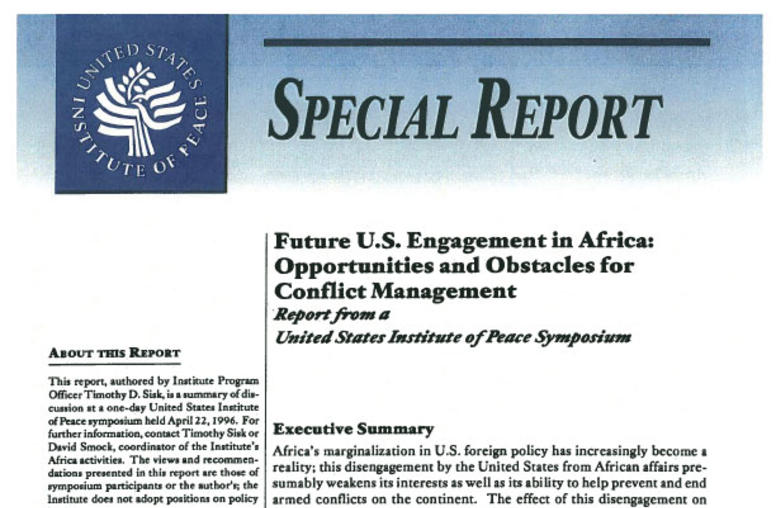
Future U.S. Engagement in Africa Opportunities and Obstacles for Conflict Management
Africa's marginalization in U.S. foreign policy has increasingly become a reality; this disengagement by the United States from African affairs presumably weakens its interests as well as its ability to help prevent and end armed conflicts on the continent.
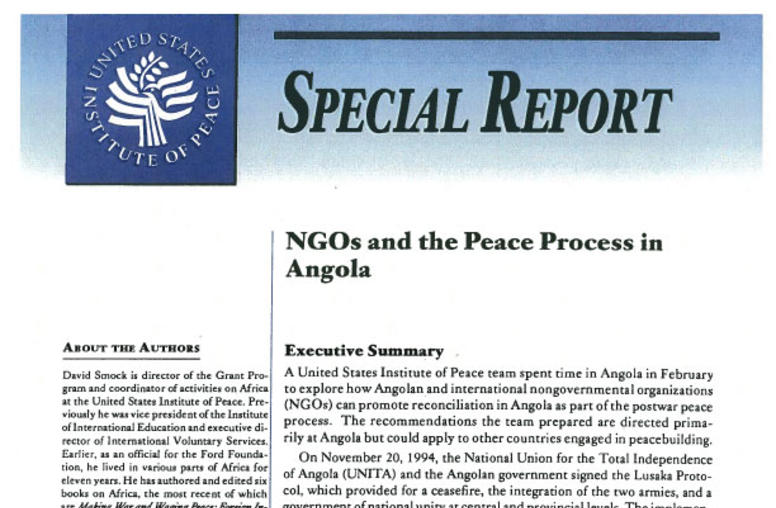
NGOs and the Peace Process in Angola
A United States Institute of Peace team spent time in Angola in February to explore how Angolan and international nongovernmental organizations (NGOs) can promote reconciliation in Angola as part of the postwar peace process. The recommendations the team prepared are directed primarily at Angola but could apply to other countries engaged in peacebuilding.
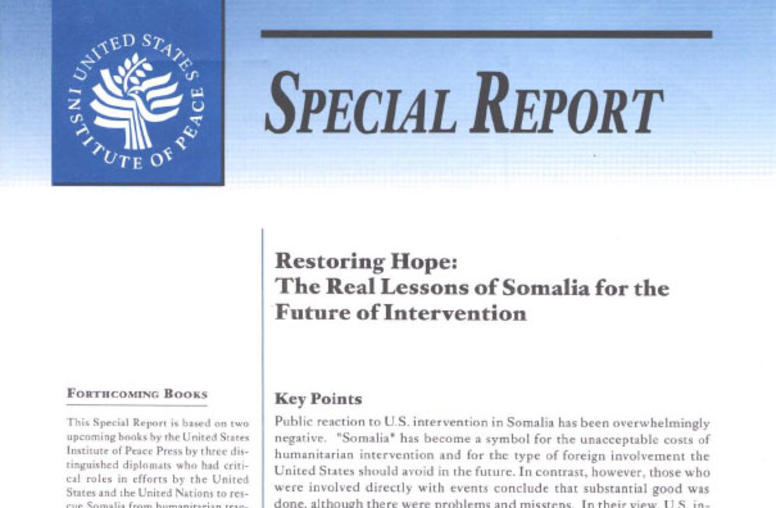
Restoring Hope: The Real Lessons of Somalia for the Future of Intervention
This Special Report distills the work of Sahnoun, Oakley, and Hirsch into an overview of the lessons of Somalia for the future of humanitarian and political intervention.
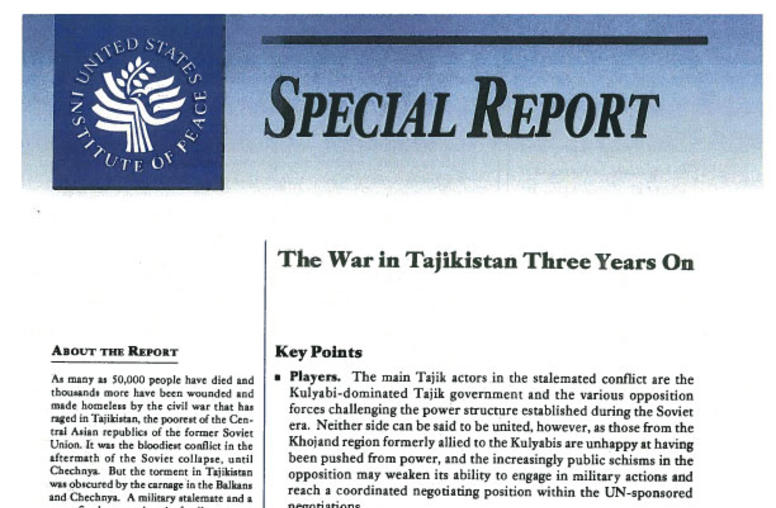
The War in Tajikistan Three Years On
As many as 50,000 people have died and thousands more have been wounded and made homeless by the civil war that has raged in Tajikistan, the poorest of the Central Asian republics of the former Soviet Union. On June 6, 1995 the United States Institute of Peace organized a forum on the Tajikistan conflict to explore prospects for negotiations and an end to the war. It included Ambassador Stanley T. Escudero, who had recently completed three years as the chief U.S. representative in the Tajik ...
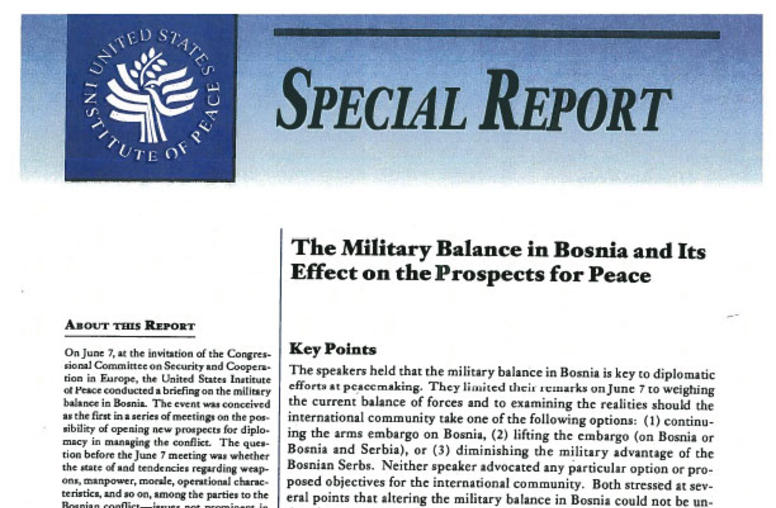
The Military Balance in Bosnia and Its Effect on the Prospects for Peace
On June 7, at the invitation of the Congressional Committee on Security and Cooperation in Europe, the United States Institute of Peace conducted a briefing on the military balance in Bosnia The event was conceived as the first in a series of meetings on the possibility of opening new prospects for diplomacy in managing the conflict.
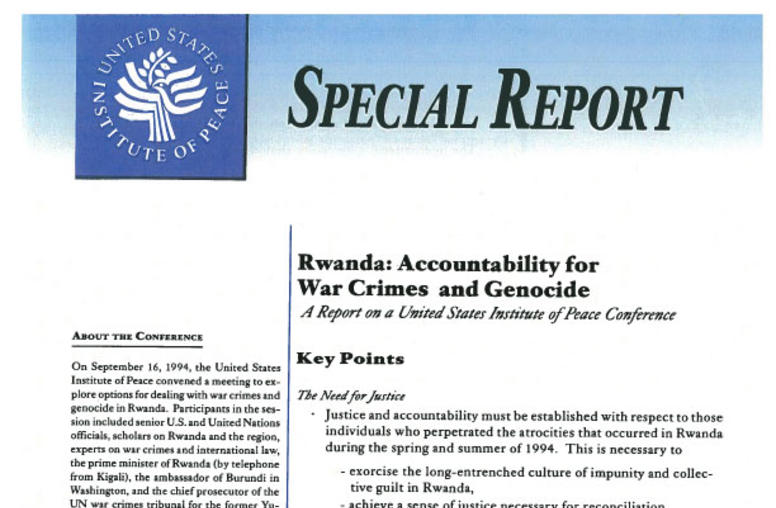
Rwanda: Accountability for War Crimes and Genocide
Before 1994, Rwanda was the most densely populated country in continental Africa. Between April and August 1994, that statistic shifted radically, as Rwanda lost 20 percent to 40 percent of its population to slaughter or exile.
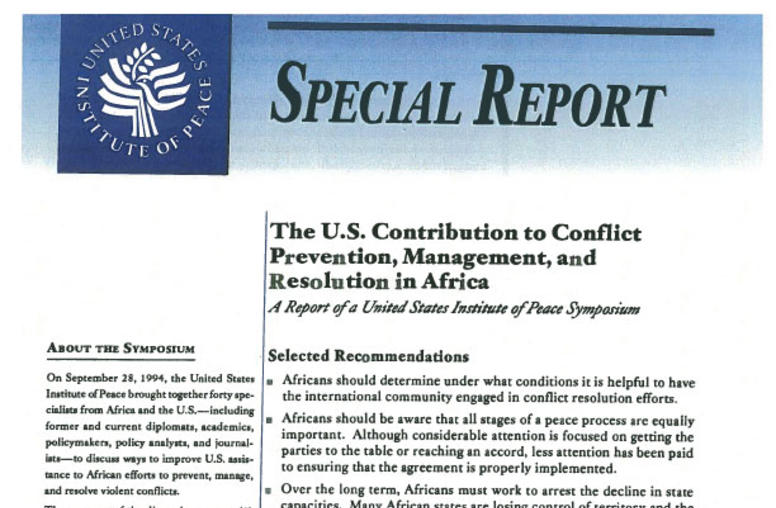
The U.S. Contribution to Conflict Prevention, Management, and Resolution in Africa
The failure of the United Nations peacekeeping mission in Somalia (UNOSOM II) to build a new state in that war-ravaged country, after the costly U.S. military intervention is often viewed as a critical lesson about the problems associated with the international community's attempts to resolve conflict in Africa. Thus, when genocidal strife erupted in Rwanda in 1994, causing millions of Rwandans to flee into neighboring countries, there was a strong reluctance to allow U.S. forces to become e...
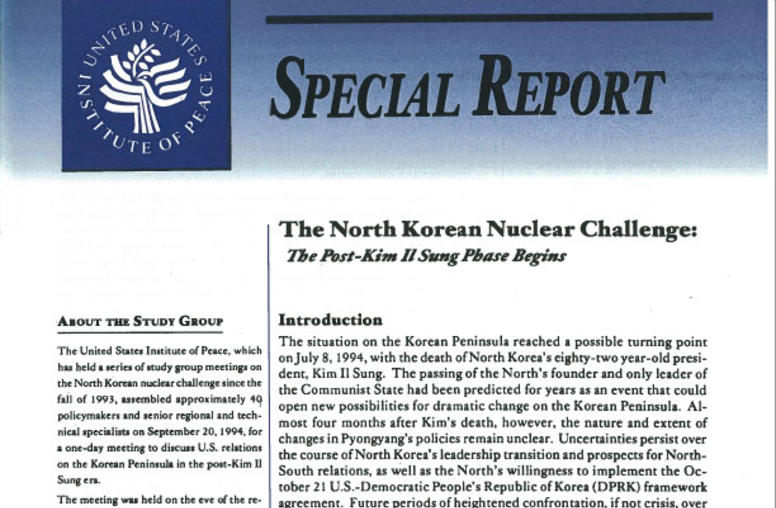
The North Korean Nuclear Challenge: The Post–Kim Il Sung Phase Begins
The situation on the Korean Peninsula reached a possible turning point on July 8, 1994, with the death of North Korea's eighty-two year-old president, Kim Il Sung. The passing of the North's founder and only leader of the Communist State had been predicted for years as an event that could open new possibilities for dramatic change on the Korean Peninsula. The United States, South Korea, and North Korea's other neighbors face significant challenges in determining policy adjustments that might...
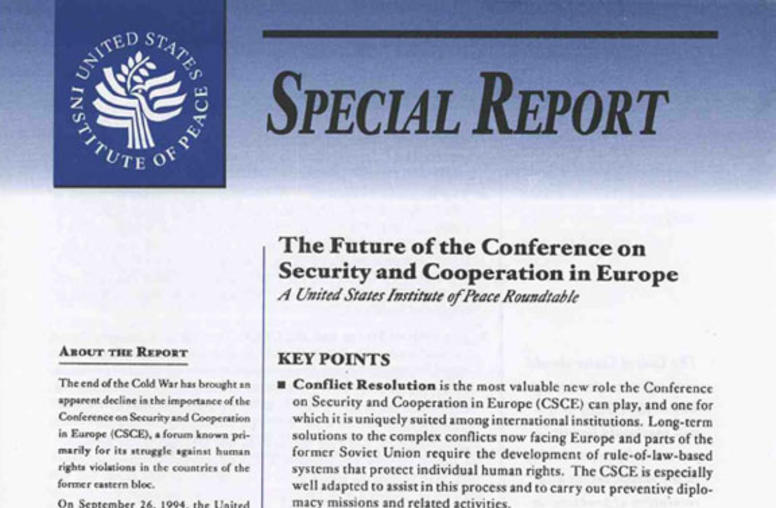
The Future of the Conference in Security and Cooperation in Europe
The end of the Cold War has brought an apparent decline in the importance of the Conference on Security and Cooperation in Europe (CSCE), a forum known primarily for its struggle against human rights violations in the countries of the former eastern bloc.